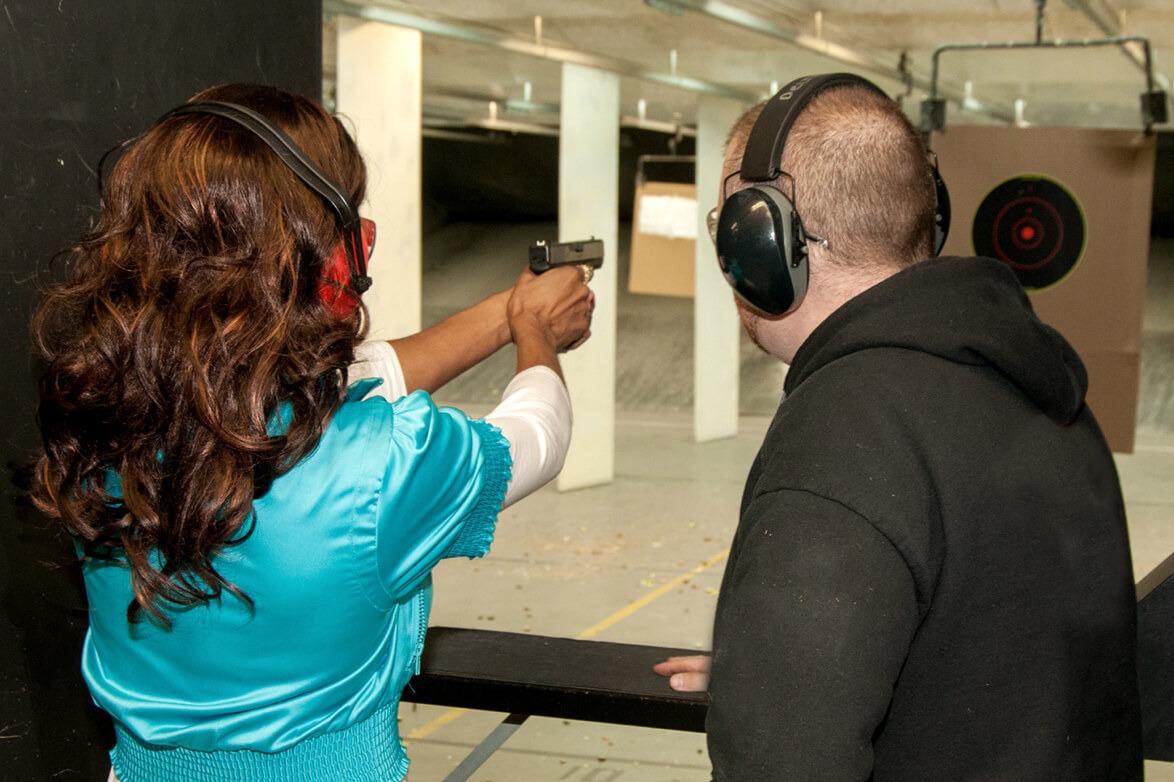 Back to News
Back to News
December 14, 2023
House Subcommittee Seeks Answers on Suspicious BIS 90-Day Firearm Export ‘Pause’
It was an unprecedented decision when the Commerce Department’s Bureau of Industry and Security (BIS) announced it was “pausing” all new firearm export licenses to most countries for 90 days. The consequential edict was “made public” only through an inconspicuous update to the Frequently Asked Questions page listed on the bottom of the BIS website on a late Friday afternoon.
All appearances point to it being another example of the Biden administration’s hyper focused attacks on the lawful firearm industry and ceding to the whims of gun control activists. Needless to say, the administration has been stonewalling Members of Congress attempting to get answers.
The House of Representatives Foreign Affairs Committee Subcommittee on Oversight and Accountability held a hearing to do just that.
Pressing for Answers
The Subcommittee on Oversight and Accountability is chaired by Rep. Brian Mast (R-Fla.), a fourth-term congressman who served in the U.S. Army as an explosive ordnance disposal technician. He lost both legs after stepping on an improvised explosive device (IED) in Kandahar, Afghanistan. During his opening remarks, Chairman Mast reminded the BIS witnesses what their mission is.
“The Bureau of Industry and Security has a duty to set and enforce rules that protect American national security under the Export Control Reform Act of 2018,” Rep. Mast remarked. “But under the Biden administration’s leadership, there have been places where they have not executed this mission.”
Congressman Tim Burchett (R-Tenn.) used time to ask witnesses about the unprecedented pause that pulled the rug out from under lawful American businesses.
“The Bureau of Industry and Security recently announced a 90-day pause on firearms exports. Congressional staff was given only one hour’s notice. Why was more time not given to alert Congress?” asked the congressman.
The Assistant Secretary of Commerce for Export Administration within BIS, Thea Rozman Kendler, demurred. She hedged about it “not being a change in policy only a pause to ensure the existing policy aligned with our national security priorities.” The congressman wasn’t having it. After all, the reforms Chairman Mast spoke about strengthened end-to-end user checks to ensure firearm exports weren’t being sent overseas to bad actors.
“It appears y’all didn’t have any conversations with stakeholders in this,” Rep. Burchett replied.
He’s right. After all the commercial firearm manufacturers Rep. Burchett was alluding to are already going through several layers of compliance checks.
“Firearm manufacturers have told me they were given no warning. Also, why were the firearms industry – why were they singled out in this issue?” he asked.
“We look at regional stability issues and particularly in the Western hemisphere, we have gun violence issues that lead to regional instability,” Kendler answered.
“But these people are in business, ma’am. And if you cut them off… governments can just print more money. These people can’t,” Congressman Burchett said.
Kendler admitted the pause is in fact having a negative impact on a good portion of the commerce licenses being sought.
“NATO license applications are still being processed. That’s about, frankly, 75 percent by value of our license applications that we continue to process,” she said.
In other words, Kendler admitted there was a change in policy that has reduced – by at least 25 percent – the number of commercial firearm export licenses by American firearm industry manufacturers.
Congressman Burchett’s final question centered on the new White House Office on Gun Violence Prevention that’s staffed by gun control lobbyists and activists.
“Did anyone at the Commerce Department have conversations with the White House Office on Gun Violence Prevention prior to this decision?” he asked.
Kendler didn’t directly answer. But NSSF has heard from reliable sources who say that is exactly who BIS has been talking to about their new policy, along with Bureau of Alcohol, Tobacco, Firearms and Explosives (ATF) officials and the Deputy Attorney General’s office.
Full Court Press
The subcommittee’s hearing wasn’t the first Congressional action taken. The Biden administration made the secretive announcement in late October and since then there’s been plenty of Congressional pushback.
In the House of Representatives, Rep. Mark Green (R-Tenn.) has led the charge in demanding more answers. He authored a letter to Commerce Secretary Gina Raimondo that was signed by 88 of his Congressional colleagues. Rep. Green echoed the security sentiments Chairman Mast brought up in the hearing.
“As long as evil persists, there will always be a need for good people to defend themselves and their loved ones,” the letter stated. “Not only does BIS’s pause on firearms export licenses leave people even more vulnerable, but it will also push buyers to look elsewhere to meet their customers’ demands.”
The signatories questioned the abruptness of the decision to block firearm exports.
“This policy went into effect without any advance notice… Such sweeping action by BIS is unprecedented,” the Members stated.
Following that, Rep. Green introduced H.R. 6504, the NSSF-supported Protect American Gun Exporters Act, or PAGE Act. The bill would prohibit any actions taken to carry out the Commerce Department’s export licensing pause.
U.S. House Committee on Small Business Chairman Roger Williams (R-Texas) wrote his own letter to Under Secretary of Commerce for Industry and Security Alan Estevez seeking information.
“This prohibition places a substantial burden on those businesses and individuals that rely on exporting as a source of income and for manufacturers of weapons and ammunition,” Chairman Williams wrote.
House Oversight Committee Chairman James Comer (R-Ky.) sent an NSSF-supported letter to Commerce Secretary Gina Raimondo demanding an answer to the decision to stop exports as well. Chairman Comer wrote, “This action has raised concern about a possible extralegal attempt by the Biden Administration to harm the domestic firearms manufacturing industry in pursuit of an anti-firearm agenda.”
Senate Weighs In
The action hasn’t been limited to the House of Representatives, either. Forty-six senators – nearly half of the entire Senate – signed a letter led by Sen. Ted Budd (R-N.C.) demanding Commerce Secretary Gina Raimondo answer for the sudden pause.
The senators understand the pause is simply an anti-Second Amendment, anti-industry attack by the White House. They understand all firearm and ammunition exports are subject to Defense and State Department review, which can halt the export if there are concerns. At present, no other commodity is subject to the same 100 percent check.
“As you know, firearms exports to non-government users in countries not covered by the exception constitute a significant percentage of overall U.S. firearm exports,” Sen. Budd wrote. “This pause puts at stake U.S. commercial and economic interests…”
Congressional members will continue to put pressure on the administration for their purposeful and blatant anti-industry attack that does nothing to hurt national security. It only penalizes lawful American businesses and puts others at risk of being left unable to protect themselves from threats.
You may also be interested in:
Antigun Senators Bloviate Over Inability to Block Firearm Exports
Categories: BP Item, Featured, Government Relations, Top Stories









